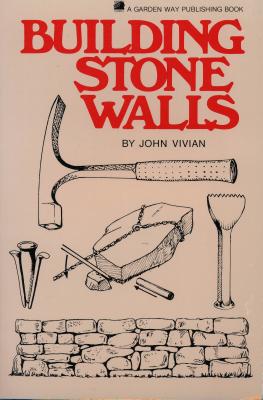
 10
10




 7
7




John Daley Bendigo, Australia The Enemy of progress is the hope of a perfect plan
Benefits of rainfall collection https://permies.com/t/88043/benefits-rainfall-collection
GOOD DEBT/ BAD DEBT https://permies.com/t/179218/mortgages-good-debt-bad-debt
 9
9




Visit Redhawk's soil series: https://permies.com/wiki/redhawk-soil
How permies.com works: https://permies.com/wiki/34193/permies-works-links-threads
 5
5





 7
7




- Tim's Homestead Journal - Purchase a copy of Building a Better World in Your Backyard - Purchase 6 Decks of Permaculture Cards -
- Purchase 12x Decks of Permaculture Cards - Purchase a copy of the SKIP Book - Purchase 12x copies of Building a Better World in your Backyard
 6
6




Timothy Norton wrote:The amount of rocks in the ground that had to be handled by hand and horse to make these walls along with the man-hours required is mind boggling. I hunt some public land in New York which is forested now but throughout the mountain are rock lined walls lost to time.
 2
2




Do you have any info on how they were made, Larry? I'm wondering if they used wooden ramps and rolled the rock to get them up, or if they used some sort of a wood tripod and block and tackle. I expect in New England there would have been such a strong "ship" history that using pulley systems would have been second nature. Nowadays, most people on the street wouldn't have a clue how to set up and use a multiple pulley system.Larry Fletcher wrote:I know it! The walls on my property are made of massive rocks on a steep incline. I would love to have been a fly on a wall to that project.
Visit Redhawk's soil series: https://permies.com/wiki/redhawk-soil
How permies.com works: https://permies.com/wiki/34193/permies-works-links-threads
 3
3




Jay Angler wrote:Do you have any info on how they were made?












 8
8




- Tim's Homestead Journal - Purchase a copy of Building a Better World in Your Backyard - Purchase 6 Decks of Permaculture Cards -
- Purchase 12x Decks of Permaculture Cards - Purchase a copy of the SKIP Book - Purchase 12x copies of Building a Better World in your Backyard





Tradition is not the worship of ashes, but the preservation of fire.




 1
1





John Daley Bendigo, Australia The Enemy of progress is the hope of a perfect plan
Benefits of rainfall collection https://permies.com/t/88043/benefits-rainfall-collection
GOOD DEBT/ BAD DEBT https://permies.com/t/179218/mortgages-good-debt-bad-debt

|
The moustache of a titan! The ad of a flea:
Large Lot for Sale Inside an Established Permaculture Community — Bejuco, Costa Rica
https://permies.com/t/366607/Large-Lot-Sale-Established-Permaculture
|


